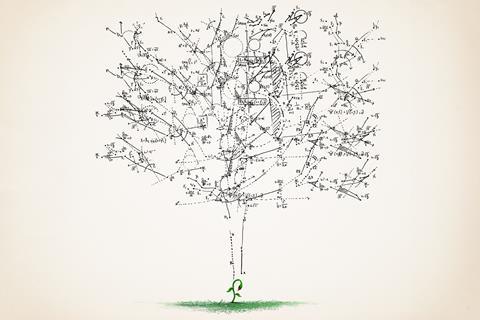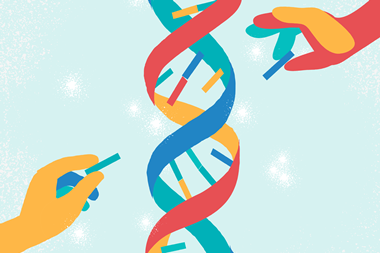To codify and predict ever more complex phenomena is one of science’s great drivers

There are a lot of reasons why people are motivated to do scientific research, with sheer curiosity about the natural world being near the top of the list. But there’s another one that I think doesn’t get enough attention: the desire to believe that there really are truths and rules.
To someone outside the field, that might sound a bit perverse. After all, one of the famous things about science is that longstanding theories can get overturned based on new evidence. To pick one example, there are so many stories about earlier generations of older physicists resisting the ideas behind quantum mechanics or relativity because they seemed too alien and counterintuitive. Chemists have not always covered themselves in glory, either: the entire idea of stereochemistry – that different atoms had bonding patterns that fell into set three-dimensional shapes and, in turn, determined the sizes and shapes of molecules – was ridiculed by a number of Big Names at the time. More recently, the advent of NMR spectrometry and the wealth of structural information it provided in organic chemistry forced some older practitioners to take early retirement as they found their own chemical-structure-through-degradative-reactions skills suddenly devalued.
The efforts to take the few things that worked repeatably and to gradually build on them is what turned alchemy into chemistry
But in all these cases, it’s a situation where rules and principles are being replaced by other rules and other principles. The fundamental idea that the universe has order and patterns that can be discerned and used to make predictions is intact. And that’s what I think many of us find comforting. The alternative, you’d think, would be sheer magical thinking, but a look at medieval texts (and not-so-medieval ones) will show that magic was its own attempt at interpreting the world, with laws and rules and classifications. Its main problem was that none of its practitioners could agree for long on any of them, because none of those ideas actually worked in practice. The efforts to take the few things that worked repeatably and to gradually build on them is what turned alchemy into chemistry.
I think that finding these laws of nature and being able to build on them gives us an anchor, something to trust. In the foundation of it all, what’s been called ‘the unreasonable effectiveness of mathematics’ really is something to hold on to. That’s true even after Kurt Gödel’s Incompleteness Theorems blew up David Hilbert’s dream of putting mathematics on a complete and logical footing from first principles. But as you move up from mathematics, those beautiful crystalline certainties get harder and harder to come by. We still have some in chemistry (mostly in the parts that overlap with physics!), but biology is harder pressed to deal systematically with all the hey-whatever-works complexities that have piled up over the last few billion years of evolution.
And that takes us up to my own profession of drug discovery. Medicinal chemists live in an interesting transitional area. On one side of it we can tell you the molecular weight of that new drug candidate to four or five decimal places (with copious explanations of isotopic abundance to explain how we arrived at that figure). But on the other side, we are not really going to be able to tell you what that molecule will do when it’s dosed in 500 people in a clinical trial. Will it treat the disease that we’re aiming at, or will it do the same thing as giving all the participants an after-dinner mint instead? Or worse, because the possibility of worse is always flapping around silently behind our backs, no matter how much we hope it isn’t.
Drug company executives always seem to put on a show of bravery and competence when these issues come up, with predictions about the number of clinical trials that will be running and the number of regulatory approvals they expect. But they know as well as anyone else that ‘time and chance happeneth to them all’, even if they don’t want to dwell on that while speaking to investors. It’s unnerving that the future of your company – and your job – actually rides on a process with so many unknowns in it. There are indeed truths and rules in the world of science, and that’s a wonderful thing. But in the biomedical world we just don’t know what most of them are yet. Which is not so wonderful. Time to think about something else!

















No comments yet